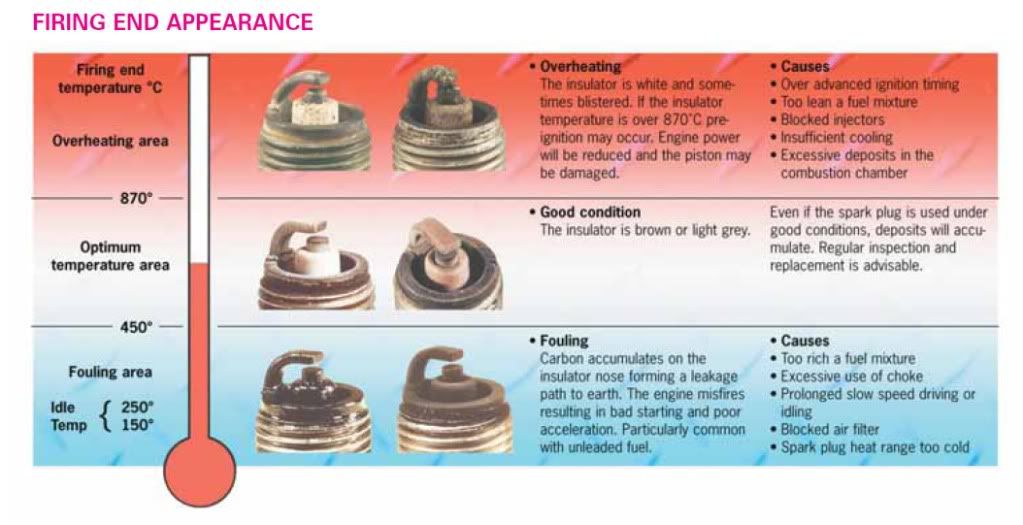Hi all,
i just finished reading the Haynes Owner's Workshop Manual on the Messerschmitt 109 (no, i don't have one:) and there was an interesting bit of info on sparkplug cleaning, stating that if engine runs rough or there is a significant rpm drop, over 50 rpm when testing the magnetos , then a lever is pulled in the cockpit wich retards the ignition, "allowing any oil or soot on the plugs to be burned off".
How does this work?
Now, the Daimler Benz 605 fuelinjected supercharged V12 (4 valves, 2 sparkplugs/cyl)is of course a tiny bit from my 500cc sidevalve, but if i experience some rough running i'll test retarding the ignition and pretend it's my Spitfire vibrating underneath me, and see if it works :)
Two magnetos could perhaps be handy even on a M20...
The book, was a very interesting reed, as was the Spitfire one. Anyone of you going to Duxford Flying Ledgends this year? I will, not on my M20 regrettably.
You all have a nice weekend!
/Jerry
email (option): jerry.carlsson@sspa.se
Hi Jerry..interesting...I can only think that the higher temperatures caused by running retarded burn oil etc. off the plugs...Ian
email (option): ian@wright52.plus.com
The ignition retard trick no doubt works because it causes the engine to run hotter than normal. With correct ignition timing, the fuel-air mixture has normally finished burning by the time the piston is about 30 degrees past TDC and then the gases start to cool down due to their expansion as the piston continues towards BDC. If you retard the ignition substantially, not much fuel gets burnt around TDC and the burning mixture is "chasing" the piston down the bore and may even still be burning when the exhaust valve opens. This extra time exposed to very hot gases heats the cylinder, head and, in particular, exhaust valve up and leads to a significantly hotter running engine, just the job for burning oil & soot off sparkplugs!
It could be a cool trick to play on an M20 which was oiling up its plug, but it sounds a bit desperate to me when you're 10,000 feet up in the air and praying that the exhaust valves are made of stern stuff.
Chris J
I'm more surprised that Haynes do an "Owners" manual for the Messerschmitt 109. I can't imagine there's a lot of demand from owners of this plane. I haven't seen it on the shelf in Halfords 
email (option): horror@blueyonder.co.uk
they do a haynes workshop manuel for your first new born baby as well how to change the oil/sorry the nappies and how to open a pushchair without chopping your fingers off i alway buy one for friends that have just had their first baby
as and aircraft mechanic who has done a number of engine run ups on piston engines, when we get a significant mag rpm drop when checking the mags the first thing that I do is to increase the rpms, and then lean back the mixture a bit, there by raising the cylinder temperature in an attempt to clear the fowled spark plug. Then I will reduce the rpms and reset the mixture and retest the magneto for rpm drops.
it is not as easy to do this with a WM20.
John M. Bierens
Wichita, KS
email (option): bierens@sbcglobal,net
Just use another cartridge like in 'Flight of the Pheonix'..it worked for Jimmy Stewart
 ...Ian
...Ian
I think Jimmy had it on Auto Lean instead of Auto Rich!!
I always thought that an engine ran hotter if it was over advanced, I didn't think you could over heat an engine with the ignition retarded, you just lose power. I nearly seized a Dommie I'd just bought once. It was pinking badly and got very hot and lost power. When I checked the timing it was forty something degrees instead of 30.
But that is a very interesting way of cleaning the plugs I'll have to try that myself.
email (option): horror@blueyonder.co.uk
Dave, an over hot engine is always a good indication that the mixture is weak or the timing too far retarded...or both Ron
Ron
email (option): ronpier@talk21.com
Thanks Ron, you learn something every day on this site 
email (option): horror@blueyonder.co.uk
This has had me very confuse and I've had to look into it a bit as I have had many problems in the past with the timing being too advanced but I've never hear of a problem with it being retarded apart from the engine not performing as well as it should, but never an overheating problem. I've just been messing about with spark plug heat values (which is another topic altogether) and found this.

As it says, one of the causes of overheating is ignition too advanced, among other things.
So I've googled it and found this explanation of ignition timing,which states;
" Too retarded timing will give low power, lousy emissions and excessive bore wear. Timing too advanced will cause pinging (a rattling noise usually heard on acceleration), overheating cylinder heads and other problems too scary to contemplate."
Yes I know those problems only to well, melted and holed pistons etc.
Here's the web page if you want to read.
http://www.type2.com/library/electrip/timex.htm
I'm not trying to be argumentative, but get to the bottom of this because I'm alway retarding the ignition on my bikes when I'm chugging around town, as you can feel the engine is under less strain and I thought not overheating as much as if it was advanced.
email (option): horror@blueyonder.co.uk
Hi Horror, Retarding the ignition at very slow engine speeds is the right thing to do. Having it set retarded at normal cruising speeds is another thing altogether...see the 'Tech Section' of the forum under ignition timing for a rundown on igitinion adv and rtd and the reasons for it....Ian
A good point made by Horror. Over-advanced ignition timing also causes an increase in engine temperatures. The effect is not too important though, until you get close to the point of detonation or pre-ignition, when it gets very serious. The top line of the scanned sparkplug diagnostic describes the plug appearance as "sometimes blistered" which I believe is a good indication of detonation, so naturally the first cause listed is over-advanced ignition.
There are many factors which govern optimum spark timing, engine speed & load being two important ones. Normally you need more advance with increased engine speed and less advance (more retard, if you prefer) with increased engine load. So you could consider that pootling around town on low revs and low load balances these two effects against each other and you may as well leave the ignition lever alone. The lever comes into its own when you're climbing a hill in top gear with the throttle wide open in order to maintain a modest speed (i.e. medium revs and high load), then you should retard the ignition somewhat.
I'm sure there are other views/explanations out there (I've just seen Ian's response). Has anyone managed to graft a mechanical automatic timing unit onto an M20?
Chris J
